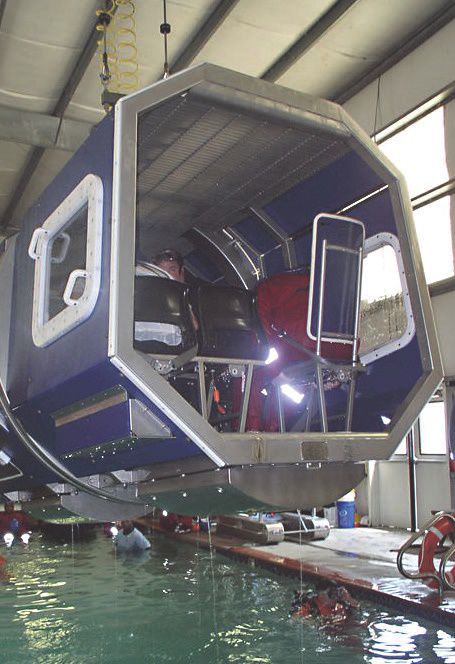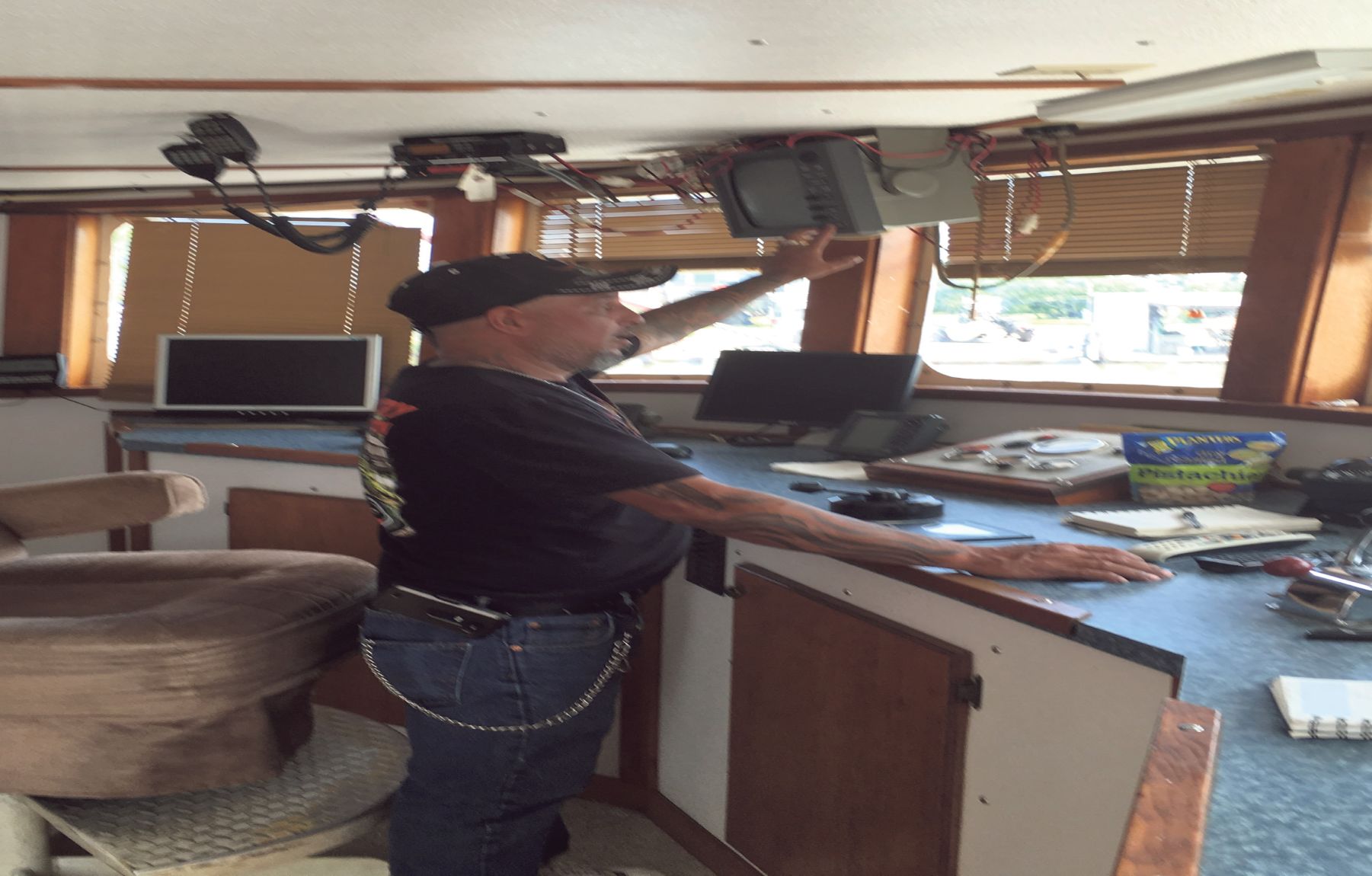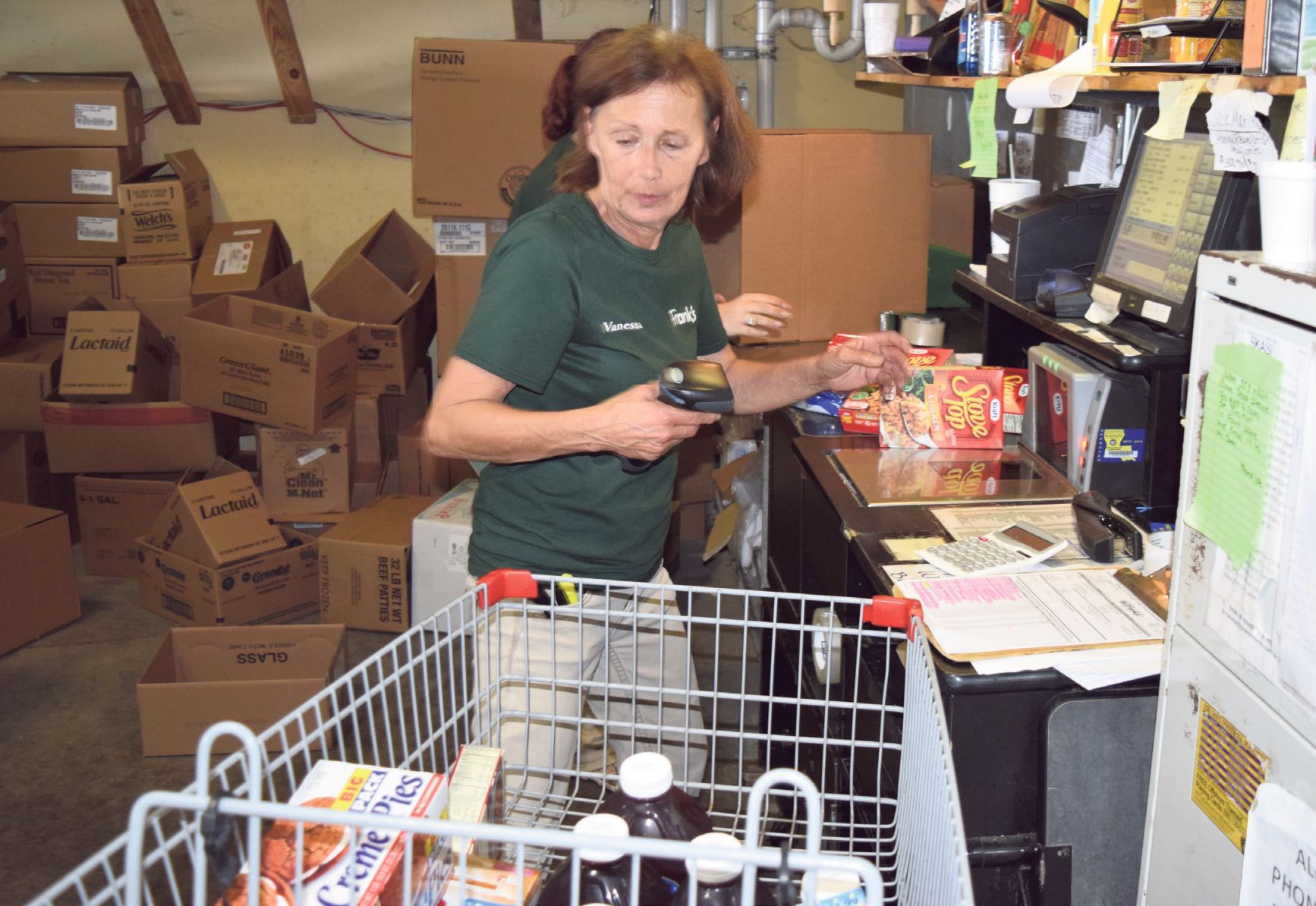
Fletcher training tomorrow’s boat captains today
May 25, 2016
Shrimpers, new rules, at odds
May 25, 2016While shoppers at Galliano Food Store grab groceries for their families, Jaedon Burregi is making sure those working in the Gulf of Mexico don’t go hungry.
Burregi, marketing director at his family’s grocery, receives boat orders via fax or email and starts organizing the delivery. Employees at the store gather the bulk quantities of goods to keep the fridges and supply closets of offshore boats and oilrigs fully stocked.
According to Burregi, a normal boat order is somewhere in the $1,000-2,000 range. The orders consist of the same things a family shops for: produce, deli and fresh meats and toiletries. Companies can pick up the order at the store, or a GFS truck can bring it to an office or a docked ship anywhere from Grand Isle to Lockport, the marketing director said.
As the depressed oil market has slowed down the oil and gas and marine industries, supermarkets like Galliano Food Store have felt the crunch.
Burregi said boat orders account for about 50 percent of GFS’s business. Although many customers have remained loyal, the sluggish offshore activity’s effects have not avoided his store.
“That’s taking an effect on all of us down here. We’ve all kind of seen the slump happen, but the bulk of the customers have stayed steady with us,” he said.
Also experiencing the energy sector slowdown’s drag on its sales is Frank’s Supermarket. The local supermarket with four locations, including one in Golden Meadow and one in Larose, supplies offshore companies and tugboats with their goods. David LeBoeuf, owner of Frank’s, said his company typically delivers orders to boats at different ports multiple times a day. He said about 30 percent of his company’s total sales are offshore orders.
According to LeBoeuf, offshore sales are down 50 percent from its peak in 2014, but the good news is that the free fall seems to have stalled.
“It seems to have leveled off a little, but it definitely hasn’t rebounded lately,” he said.
Burregi said those customers that have stayed onboard have cut back on their spending. Where previous orders may have featured more brand-name and higher-end foods, orders from the same company now may include more generic brands.
“Most orders have limits on how much they can spend, and those limits have either been decreased or are very strict now. Where before we could play with it a little bit and the company would allow us to do more with it,” he said.
GFS has not seen a chance to recoup its losses in other areas. To remain competitive, the business has instead looked to downsize in this depressed market when the opportunity presents itself.
“As the economy turned weak, as people started quitting, we kind of just didn’t rehire,” Burregi said.
LeBoeuf said Frank’s marine business has not been strong enough to replace their lost offshore revenues. Instead, Frank’s has just had to take the hit on the chin and wait for the market to bounce back.
“It’s really nothing you can do in this area. As long as the vessel’s not working, they’re not buying groceries,” LeBoeuf said.
While Frank’s and GFS wait out the downturn’s effects on their marine sales, a larger local business has looked to make gains in the market. Rouses has ramped up its marine sales sector over the past few years. According to Rouses managing partner Donny Rouse, though the marine market makes up a small segment of overall business, the company has increased its sales in that area by about 50-60 percent over the last two years.
“We’ve gotten real active and have really been going after the marine industry and showing the services we can provide in comparison to out competitors. We saw an opportunity to where we could get into that market and gain sales from it,” Rouses said.
Rouse said the company services the marine industry across eight stores, ranging from Mobile, AL to Galveston, TX. According to Rouse, an order can range anywhere from $800 to $30,000, depending on the size of the vessel and how long it is out of port. The company has been able to continue growing the segment in the face of the slowdown by looking for a diverse marine market from the get-go. Rouse said his company serves the needs of both “brown-water” and “blue-water” vessels.
“The oilfield industry has slowed down. But we’re a little more diversified in our marine area as far as the customers who we serve. So we picked up more marine business that’s not directly involved with the price of oil,” Rouse said.









